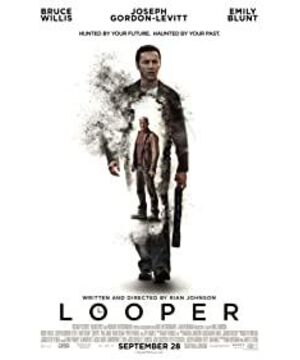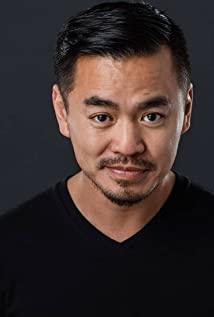According to the logic of this movie, the young protagonist has two choices at the beginning. One is to let go of the old protagonist and enter the A timeline, which is the timeline we will talk about most of the time. The second is to kill the old protagonist and enter the B timeline. In this timeline, the protagonist goes to Shanghai to meet Xu Qing, becomes the old protagonist, and then crosses to the A timeline.
So the story told in this movie can be understood as: the story of the young protagonist in the A timeline and the old protagonist in the B timeline who crossed to the A timeline.
Here comes the problem.
What is the significance of what the old protagonist does in the A timeline?
From the fact that the lettering on the body of the young protagonist can affect the old protagonist, we can think that what the young protagonist does has an impact on the old protagonist. And as I said later, the memory of the old protagonist is fuzzy in the A timeline. When the young protagonist does something, this memory will become clear. That is to say, the memory of the old protagonist from the B timeline will tend to be the behavior of the protagonist on the A timeline. What the young protagonist does not do will become "things that have never happened before" and "things in other timelines" in the old protagonist.
The purpose of the old protagonist is: kill RAINMAKER and save his wife.
Unfortunately, he forgot a problem that his wife only exists in the B timeline. A timeline young protagonist justly stated that he would not go to China. Even if the RAIN MAKER is really killed, it is the result of the young protagonist and his wife not knowing each other, and the wife is living safely. Everyone knows, isn't this just a butterfly interaction?
But the purpose of the old protagonist is to save his wife, not to forget her. If the purpose of the old protagonist is just to "let the Chinese wife live in peace, it doesn't matter if you know yourself or not", this kind of butterfly interaction style of high spirits. Just warn the young protagonist not to go to China. There is no need to spend a lot of time.
So I don't understand, what the hell the old protagonist is going to do? He said the purpose is to "rescue his wife". This is a very vague concept. You don't even know what time he is trying to save his wife. But since he is already in the A timeline, he should save the A timeline.
According to the old protagonist's logic, he thinks that killing RAINMAKER can save his wife. So we assume that he really killed RAINMAKER, and then? He waits a few decades to go to Shanghai? But the Chinese wife was obviously not the protagonist of this age. Inspire the young protagonist to go to Shanghai? That would only allow the young protagonist he hated to find his wife, and it had nothing to do with him.
So what?
Thinking of this, I don't understand the logic of the screenwriter at all.
Of course, I think there is another possibility that Bruce Willis's man looks more developed limbs and simple minded, so I simply feel that if you kill Rainmaker, the world will be better off.
Of course, there are many more unreliable places: for example, where did the protagonist's ability to open the sky's eyes last? Why let LOOPER kill himself? Can the protagonist commit suicide to save the future world?
But I think the screenwriter’s brain seems to be seriously inadequate, so don’t expect it.
Of course, serious discussion of the LOOP logic of this film is simply useless work. I think the screenwriter obviously wants to transform the movie into an action movie in the second half, a whole cyclops, two guns and four tigers, okay... In the
end, the small negative character chased after the farm. I thought he was going to play an important role, and the result was Why bother with a cannon fodder! ! !
Generally speaking, this kind of movie should always make people feel "wow, everything is connected!" The end result is that nothing is connected, only guns and guns.
View more about Looper reviews











